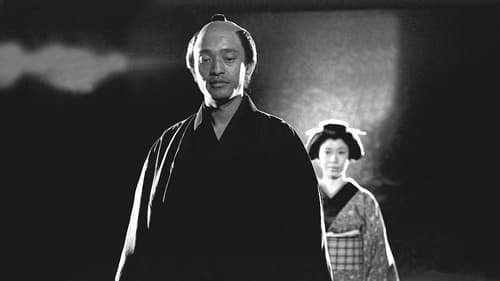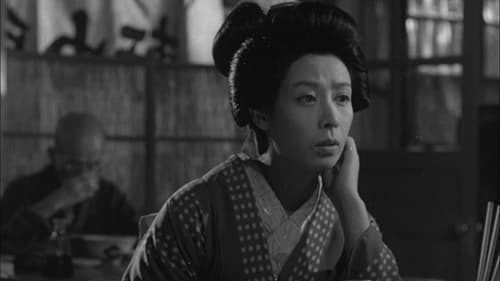Chûzaburô Wakamiya
Nacimiento : 1911-03-13, Kyoto, Kyoto Prefecture, Japan
Muerte : 1982-03-23

Undertaker
Drama basado en una historia real que gira en torno a una mujer que pasa nueve meses tratando de recuperar el cadáver de su marido, luchando sin desfallecer contra la burocracia y la indiferencia gubernamental a lo largo de todo el proceso.

Shunkin es una maestra ciega de shamisen y koto (instrumentos musicales japoneses). Ella atormenta y tortura a sus estudiantes, incluyendo a su siempre fiel aprendiz/servidor/amante, Sasuke. Cuando uno de sus enemigos vierte agua hirviendo sobre su cara, dejándole cicatrices para toda la vida, Sasuke adopta todo tipo de medidas para asegurarse de no volver ya a ver la cara de ella. La historia es contada por su antigua criada, en un asilo de ancianos, a un investigador, personaje interpretado por el propio director sin acreditar.

President
A truck driver is reunited with friends from his youth in a seedy bar and gets drawn into a web of crime.

Doctor
A young couple, composed by a cheating wife and a retired car racer, arrive at a drive-in. A man with a gun arrives at the restaurant and takes hostages. Chaos ensues in director's Kiyoshi Nishimura's debut film, almost totally filmed in one space.

The film portrays a satirical view of today's heartless money-oriented society.

Writer Jippensha Ikku hears Tsutaya Juzaburo, a wholesaler of picture books, mutter on his deathbed, "Where has Sharaku gone?" He begins to figure out the true identity of Sharaku, who disappeared after about 150 portraits of actors he created came out.

Chubei Horikawa
Jiro, a smooth-talking, womanizing bartender, flees from a Yakuza boss to Yanagase.

Orikyo
Taka, the daughter of Naniwa-ya, a longtime Osaka store owner, married Kichisaburo Kawashima-ya, the son of a kimono wholesaler. Her husband just tried to play with her like a sweet candy, but Taka fell in love with him. One day, the father-in-law suddenly dies, and the Kawashima-ya family fortune is rapidly changing. However, the depravity of Kichisaburo does not subside...

Kubota
Also known as "History of a Man’s Face" and "By a Man's Face Shall You Know Him" . Immigrant gangs terrorize a Japanese town with their threats, loud jazz, and tasteless fashion sense, and only the tough but suave Dr. Amamiya (Ando) can stop them, as long as he gets rid of his silly peace-loving ideals.

Nine maids serve the household of a writer and his wife. The couple treat their maids like daughters and marry them off to eligible men. So, they are forever looking for new maids. As the years go by maid servants become hired help and more bossy and independent, so Chikura and his wife find themselves adjusting their lives to keep up with changing times.

In this Japanese drama, a village girl goes to Tokyo and becomes a hooker to support her ailing mother. While there she meets an unmarried teacher (at least he says he's unmarried) and falls in love. When she learns that he lied and is married to a woman whose child was fathered by another man, she is crushed. He returns to his wife. The woman becomes more distraught when she learns her uncle has misused the money she has sent. As the final straw, her mother dies, and the girl becomes sick.

Junko's uncle
Explicit drama about a young woman who becomes involved with a group of college students who play "spin-the-bottle" and the women must make love or strip. The woman, Junko, becomes involved with Makoto, leader of the gang, becomes pregnant, has an abortion, then gets involved with an architect.

Historical drama about a sleep-eyed ronin

The story of a couple, a spoiled son and a down-to-earth girl, in Osaka in the early Showa era. The film won the prestigious Blue Ribbon awards for best director, best actor (Morishige) and best actress (Awashima), and the Mainichi Concours award for best actor and best screenplay (Yasumi Toshio). It ranked second (after Naruse Mikio’s Ukigumo) on the Kinema Junpō top ten films for the year.










